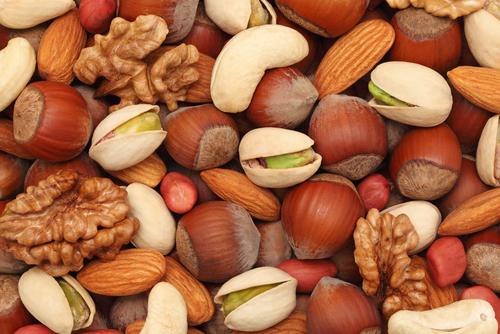
29 Jan To Your Health/Live Longer: (Pea)Nuts to You
This summer, the Telluride Ski Resort and The Peaks Resort & Spa plans to host a series of week-long wellness intensives – Live Longer Retreat – to support your (recurring) New Year’s resolution to get healthy and live longer well. The program is led by Dr. Alan Safdi, a world-renowned internist and gastroenterologist with encyclopedic knowledge of mind-body wellness and preventative medicine. Safdi also has a gift for delivering evidence-based medical findings for healthier living in easily digestible sound bytes.
In the run-up to the retreats (and earlier lectures in March and April), Dr. Safdi plans to post regular updates on Telluride Inside… and Out based on the latest, closely vetted research in health, wellness and longevity. The first in the series, “To Your Health,” was designed to start your New Year off right and jumpstart your Live Longer Retreat session. Safdi writes here about “Food Habits for Life.”
Safdi continues his series with a discussion of humble peanut and nuts in general.
Read on for more – and sign up to participate in a Live Longer at www.longevity@telski.com or call 1-877-448-5416 for further information.

We were told to avoid nuts because of their high fat content, but it turns out nuts may be some of the healthiest way to ingest a number of beneficial compounds. Tree nuts like almonds, pecans, and walnuts are especially prized for their rich cargo of vitamins, minerals, mono- and polyunsaturated fats. The very humble peanut also offers significant benefits and tends to be less pricey than tree nuts.
The health benefits of nuts include enhanced cognitive function to protect from Alzheimer’s, as well heart health. People who eat lots of nuts could well be lowering their risk of developing chronic diseases, including respiratory disease, neurodegenerative disease, diabetes, cancer, and heart disease.
In large studies those who regularly ate peanuts and other nuts were substantially less likely to have died of any cause, particularly heart disease. Typically, eating in general causes our arteries to become a little bit stiffer, but research has shown that eating peanuts with our meals helps prevent the stiffening response because they blunt the typical post–meal increase of a type of fat found in the bloodstream known as triglycerides. In short, eating peanuts keeps cells that line the arteries healthy by helping them retain their elasticity
Nut consumption has been associated with a decreased risk of colorectal, endometrial, lung, and pancreatic cancers. Polyphenols, fiber, vitamins, and minerals in nuts may confer the observed protective effect.
And now we have the first prospective study to evaluate the effect of nut consumption on esophageal and gastric (stomach) cancers. The findings demonstrate an inverse relationship between nut and peanut butter consumption to the risk of stomach adenocarcinoma (cancer) among older American adults. Unfortunately nuts did not decrease esophageal cancer in this study, but larger studies are needed.

Perhaps the only drawback to nuts is that they are high in calories, so it is important to limit portions. Choosing nuts instead of less healthy snacks may just help you stick to a heart-healthy diet. Contrary to expectations, epidemiological studies and clinical trials suggest that regular nut consumption is unlikely to contribute to obesity and may even help in weight loss while following a healthy diet.
More about Dr. Alan Safdi:

Dr. Alan Safdi is a board-certified in Internal Medicine and in Gastroenterology and a Fellow of the American College of Gastroenterology. A proven leader in the healthcare arena, Safdi has been featured on the national program “Medical Crossfire” and authored or co-authored numerous medical articles and abstracts. He has been an investigator in over 581 studies and is President of both the Consultants For Clinical Research and the Ohio Gastroenterology and Liver Institute.
Dr. Safdi has been involved in grant-based and clinical research for about 35+ years and is passionate about disease prevention and wellness, not just fixing what has gone wrong. He lectures internationally on the subjects of wellness, nutrition, and gastroenterology.
More about the other lectures:
A series of lectures given by Dr. Alan Safdi and Dr. William Renner in Telluride is planned for the Spring. The talks on health, wellness, and longevity research target health care providers as well as the general public.
A new workshops targets the veterinary world with lectures and hands-on training for veterinarians in the field of endoscopic therapy in animals. Multiple stations with direct hands-on learning with in-depth lectures with regards to GI disease that can be treated or prevented with endoscopic therapy. For more information, visit the following websites:www.wellnesstelluride.org/; www.animalendoscopy.com; and www.tellurideCME.com


Sorry, the comment form is closed at this time.